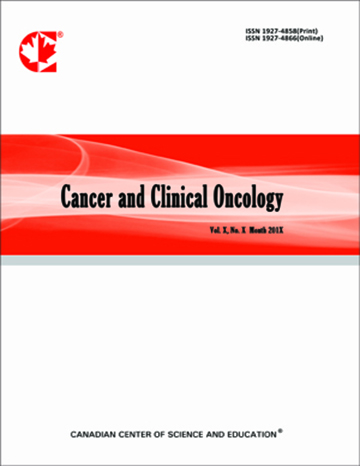No Correlation between KRAS Status and Advanced Pancreatic Adenocarcinoma Survival
- Misato Ogata
- Hironaga Satake
- Takatsugu Ogata
- Yukihiro Imai
- Yukimasa Hatachi
- Hisateru Yasui
Abstract
Erlotinib plus gemcitabine is one of the standard chemotherapies for unresectable pancreatic cancer. Pancreatic cancer has the highest frequency of KRAS gene mutations among human cancers, and some studies suggest that KRAS status might be a predictive biomarker for anti-epidermal growth factor receptor treatment. However, the reliability of this biomarker has not been confirmed. Here, we evaluated the impact of KRAS mutations in pancreatic cancer patients treated with first line gemcitabine-based chemotherapy. 23 patients treated with gemcitabine-based chemotherapy whose KRAS status could be examined from primary or metastatic lesions were enrolled. KRAS mutations were analyzed by sequencing codons 12 and 13. We retrospectively evaluated the correlation between KRAS status, and prognosis and treatment efficacy. Patient characteristics were as follows: median age 68 years, male/female=6/17, PS 0/1=9/14, TNM stage III/IV=1/22, and gemcitabine alone/erlotinib plus gemcitabine=13/10. Among the 23 patients, KRAS codon 12 was mutated in 15, one of whom also had mutation on codon 13. Median progression-free survival (PFS) and overall survival (OS) of all patients were 4.3 months (95% confidence interval (CI): 3.1 to 5.4) and 8.1 months (95% CI: 5.9 to 10.0; events in 96%), respectively. KRAS status showed no association with PFS (p=0.310), OS (p=0.934), or the efficacy of treatment with (p=0.833) or without erlotinib (p=0.478). Thus, in this study, there was no correlation between KRAS status and the efficacy of first line chemotherapy with gemcitabine with or without erlotinib. Identification of a rationale for personalized medicine in pancreatic cancer will require further exploratory prospective studies.
- Full Text:
 PDF
PDF
- DOI:10.5539/cco.v6n2p45
Journal Metrics
Google-based Impact Factor (2018): 3.94
h-index (August 2018): 8
i10-index (August 2018): 6
h5-index (August 2018): N/A
h5-median(August 2018): N/A
(The data was calculated based on Google Scholar Citations. Click Here to Learn More. )
Index
Contact
- Lexie GreyEditorial Assistant
- cco@ccsenet.org
